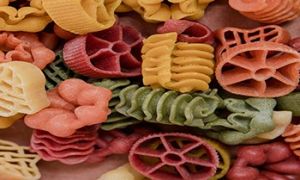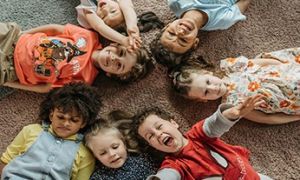

In early childhood education, numbers matter. Ratios often dominate policy debates, but group size, the total number of children in a room, can be just as critical. As policymakers revisit standards, group size caps are emerging as a safeguard for quality care, protecting both children’s developmental needs and educators’ well-being.
In early childhood education, leadership is not just about titles; it’s about responsibility, trust, and the ability to step in when needed. One role that often sparks discussion is the Second-in-Charge (2IC). What does this position really mean, and how can services set clear expectations to support both staff and children?
In the quiet hum of a weekday morning, something felt off. Preschool doors opened, but classrooms remained silent. No greetings. No redirection. No educators. And suddenly, the world felt the consequences.
This wasn’t a strike. It was a reckoning.
Early childhood educators, those often dismissed as “just babysitters,” didn’t show up. Not because they didn’t care, but because the system stopped caring first. Their passion had been trivialized. Their safety was compromised. Their pay was insulting. And when they stepped back, everything else fell apart.
The recent announcement by Minister for Education Jason Clare that childcare centres will receive funding to close early for mandatory child safety training. But let’s be clear—child protection training is not new. Educators already undertake annual courses and ongoing professional development throughout the year. You cannot work in this industry without it. Training is essential, but it is not where the real problems begin.
Child protection courses are already mandatory. The real crisis?
Too many children per educator
Understaffed centres
Lack of inclusion support for children with disabilities
Until ratios drop and staffing rises, training alone won’t fix child safety.
Children experience adult communication not just through words, but through tone, emotional energy, facial expression, and body language. Two interactions may be equally loud, yet feel completely different to a child. Understanding this distinction is essential for safeguarding, trauma‑informed practice, and meeting regulatory obligations.
A: While stencils can sometimes support fine motor skills and tracing practice, the EYLF and NQS place a strong emphasis on child‑directed, open‑ended experiences that nurture creativity, agency, and authentic expression. This means the real issue isn’t whether stencils are “wrong,” but how their use aligns with our responsibility to prioritise process art and ensure children’s voices remain at the centre of their learning.
In early childhood settings across the country, you can walk into a room and instantly tell what kind of art culture lives there. Sometimes you see walls lined with identical paper plate animals, each one carefully guided by an adult hand. Other times, you see a riot of colour, texture, and imagination — each piece unmistakably belonging to the child who created it.
The difference between these two environments is more than aesthetic. It speaks to the heart of our pedagogy, our image of the child, and our commitment to fostering creativity, agency, and authentic expression.
In early childhood education, the practice of moving educators to new rooms each year is common. Some services see it as a way to keep things fresh, while others worry it disrupts continuity for children. So, are yearly room changes supporting children’s well-being or unsettling the very relationships they rely on?
Australia’s Early Childhood Education and Care (ECEC) sector is facing a crisis that numbers alone cannot explain. On paper, more than 70,000 students are enrolled in early childhood qualifications across the country. Yet services report a shortfall of 21,000 qualified educators. Families are stuck on waitlists, centres are forced to reduce hours, and educators already in the field are stretched to breaking point.
This paradox—so many in training, yet so few in classrooms—reveals a deeper structural failure.
A: Something as simple as a child asking to braid an educator’s hair—or children braiding each other’s can spark important questions about connection, trust, and professional boundaries. For many, braiding is more than a playful activity; it is a gesture of closeness, a way of forming relationships, and in some cultures, a practice rich with tradition and identity.
At the same time, educators must balance these relational opportunities with health, hygiene, and safety considerations, ensuring that practices in the service align with professional standards and family expectations. This tension—between fostering connection and maintaining boundaries—makes hair braiding a valuable topic for reflection in early learning settings.
 As an Educator in Australia, your pay rate falls under the Children’s Services Award 2010. This award states the minimum amount that an employer can… Read More
As an Educator in Australia, your pay rate falls under the Children’s Services Award 2010. This award states the minimum amount that an employer can… Read More
 When working as a qualified Early Childhood Teacher (with a university degree) within a service, your rate of pay will come from the Educational Services… Read More
When working as a qualified Early Childhood Teacher (with a university degree) within a service, your rate of pay will come from the Educational Services… Read More
 When working as a Diploma Qualified Educator your pay rate is from the Children's Services Award 2010. This Award states your minimum rate of pay… Read More
When working as a Diploma Qualified Educator your pay rate is from the Children's Services Award 2010. This Award states your minimum rate of pay… Read More
 When working as a Cert 3 Qualified Educator, your pay rate is from the Children's Services Award 2010. This Award states your minimum rate of… Read More
When working as a Cert 3 Qualified Educator, your pay rate is from the Children's Services Award 2010. This Award states your minimum rate of… Read More
 Educational Leaders play a crucial role in their early childhood service by ensuring that the educational program aligns with best practices and supports the holistic… Read More
Educational Leaders play a crucial role in their early childhood service by ensuring that the educational program aligns with best practices and supports the holistic… Read More
 In early childhood education and care, ratios are more than a technicality—they are a frontline safeguard. Every child deserves responsive supervision, emotional connection, and developmental… Read More
In early childhood education and care, ratios are more than a technicality—they are a frontline safeguard. Every child deserves responsive supervision, emotional connection, and developmental… Read More
 Here’s a comprehensive Mobile Phone and Smart Watch Policy tailored for early childhood education and care (ECEC) services in Australia, aligned with the latest 2025… Read More
Here’s a comprehensive Mobile Phone and Smart Watch Policy tailored for early childhood education and care (ECEC) services in Australia, aligned with the latest 2025… Read More
 With the new national child safety reforms kicking in on 1 September 2025, early childhood services like yours have a real opportunity to lead the… Read More
With the new national child safety reforms kicking in on 1 September 2025, early childhood services like yours have a real opportunity to lead the… Read More
 The Sea of Fish Challenge is a national initiative that invites children, educators, families, and communities to create and display fish artworks as a symbol… Read More
The Sea of Fish Challenge is a national initiative that invites children, educators, families, and communities to create and display fish artworks as a symbol… Read More
 Across the early childhood education and care sector, educators are sounding the alarm: current staffing ratios are insufficient to deliver safe, meaningful, and developmentally appropriate… Read More
Across the early childhood education and care sector, educators are sounding the alarm: current staffing ratios are insufficient to deliver safe, meaningful, and developmentally appropriate… Read More

Here are some ways to dye pasta, whether for crafts, sensory play, or even naturally...
See more...
Yulunga means playing in the language of the Kamilaroi (Gamori) people of northwestern New South...
See more...
The following is a list of critical reflections that can help educators evaluate and continuously...
See more...© 2009-2025 Aussie Childcare Network Pty Ltd. All Rights Reserved.

